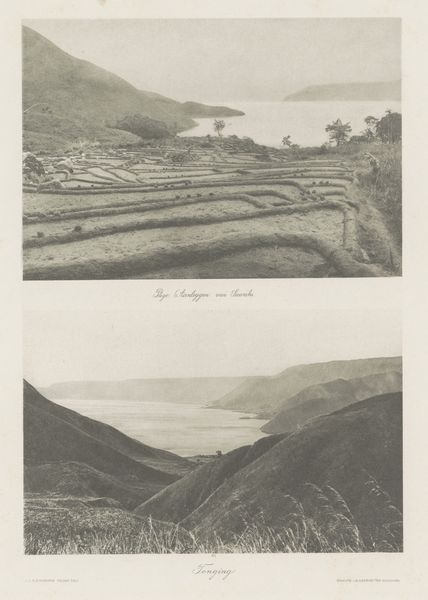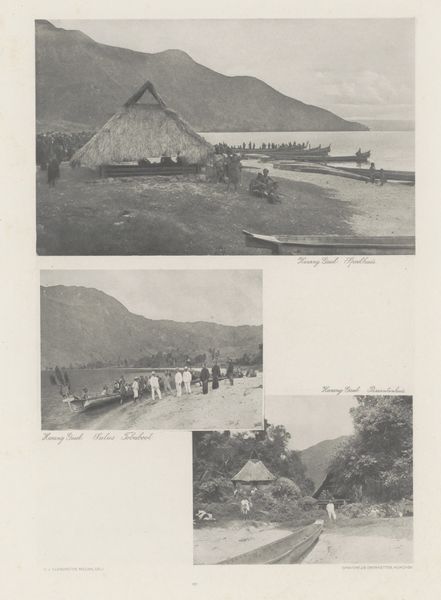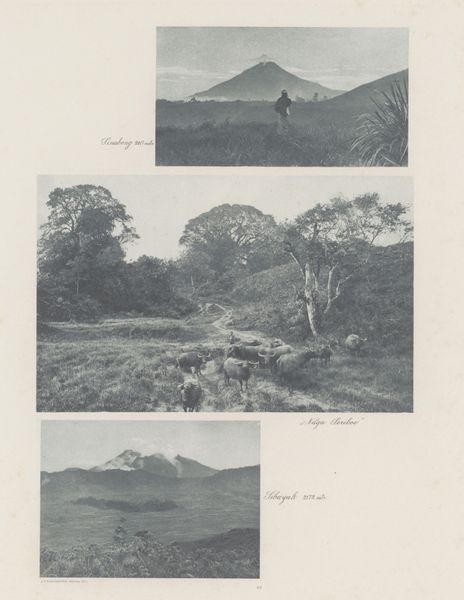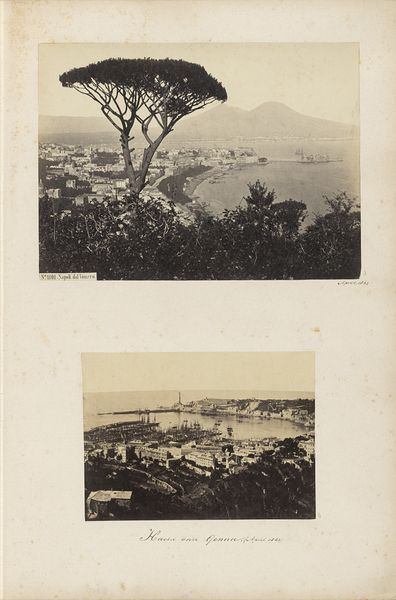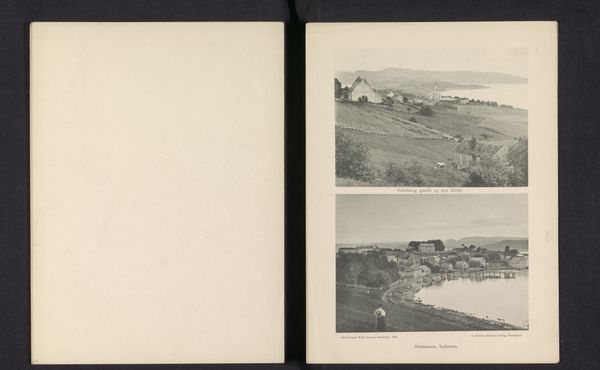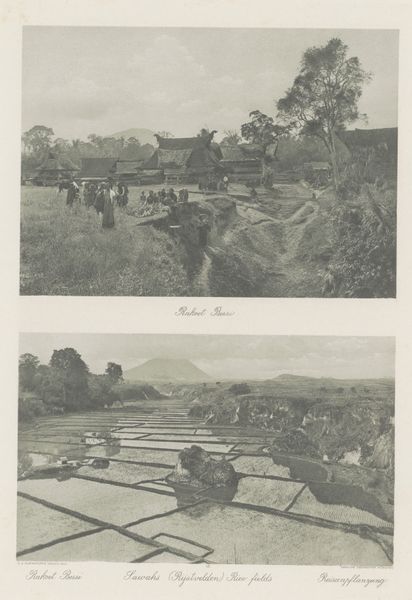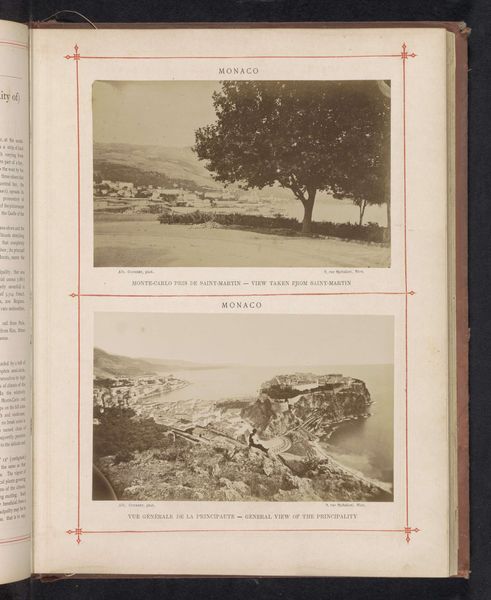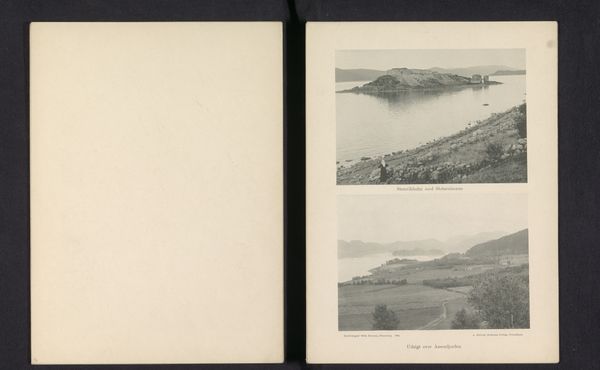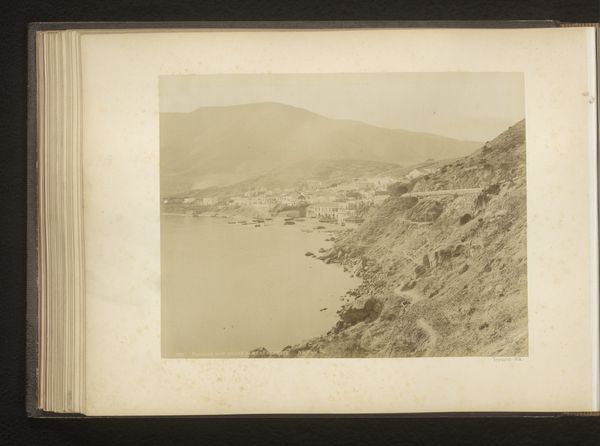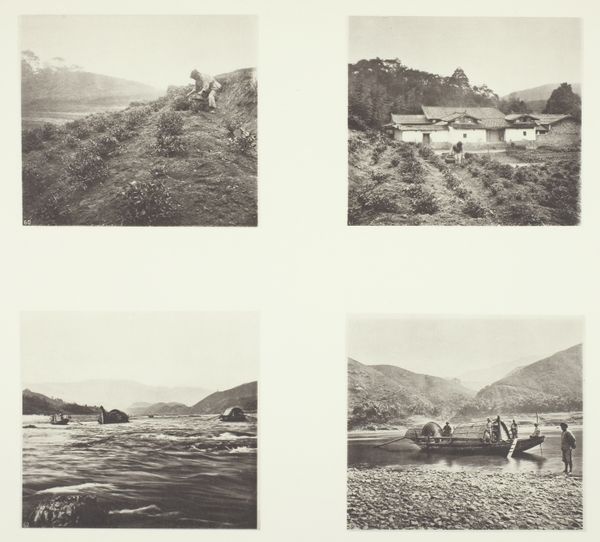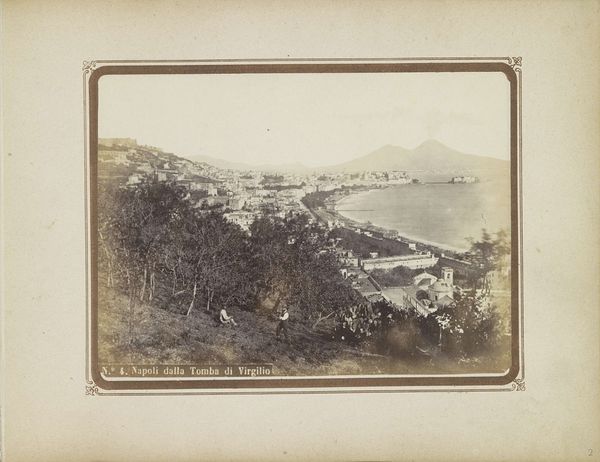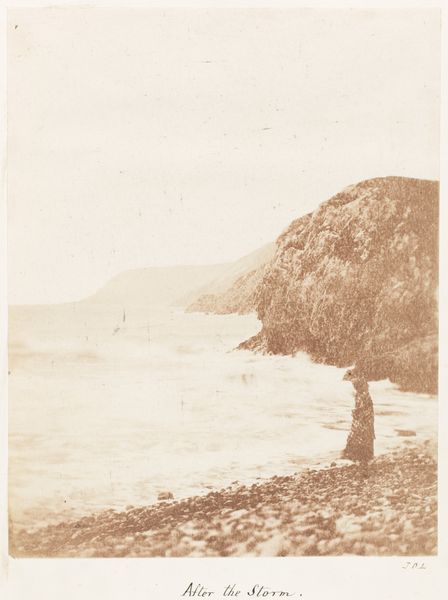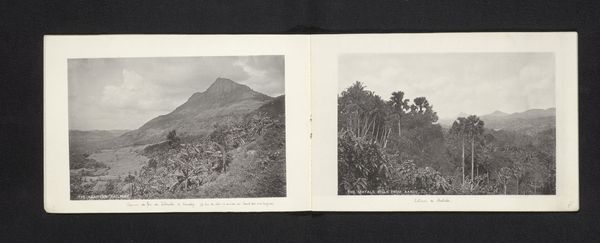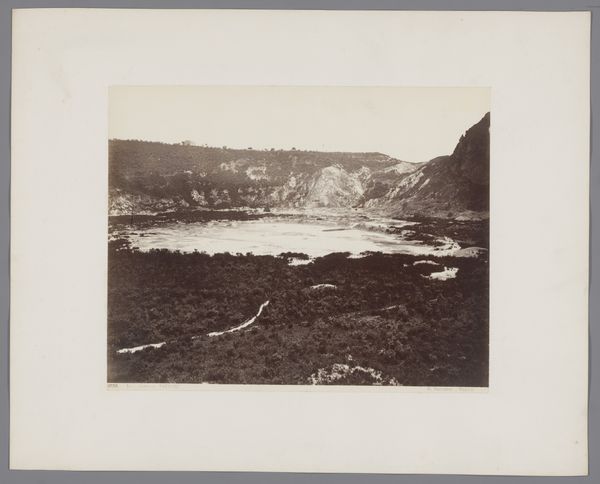
Gezicht op Harang Gaul (boven) en een rijstveldwachter (onder) op Sumatra before 1898
0:00
0:00
carljkleingrothe
Rijksmuseum
print, photography
# print
#
landscape
#
photography
#
orientalism
Dimensions: height 138 mm, width 219 mm, height 140 mm, width 220 mm
Copyright: Rijks Museum: Open Domain
Editor: So this is "Gezicht op Harang Gaul (boven) en een rijstveldwachter (onder) op Sumatra," a photograph taken by Carl J. Kleingrothe before 1898. I’m struck by how it presents these two distinct scenes, landscape and labor, in a single frame, and the soft, almost dreamlike quality of the print. What stands out to you in this piece? Curator: Immediately, the composition highlights the colonial gaze at play. These seemingly benign landscapes are, in fact, loaded with implications of power and control. Note the division: the upper scene offers an untouched, idealized view, while the lower one depicts the "rijstveldwachter"—a rice field watchman—whose labor literally supports that idyllic vista. Editor: That’s a powerful contrast. It hadn’t struck me that the "untouched" landscape could be read that way. What do you make of the orientalist style assigned to it? Curator: Exactly. Orientalism here isn't just about aesthetic choices. It’s a way of framing Sumatra for a Western audience, reinforcing existing stereotypes of the "exotic" East. We must critically examine how images like this participated in constructing and perpetuating those narratives. The figures in the photograph aren’t given agency; they become part of the scenery, tools of colonial representation. Consider the rice field watchman, almost disappearing into the landscape, his individuality erased by his role as a worker. What does that say about how the photographer, and by extension, the colonizers, viewed the local population? Editor: It feels like I'm seeing the photograph through a whole new lens. I was initially drawn in by the aesthetic, but now I see how important it is to consider the social and historical context. Curator: Precisely! And by doing so, we unlock its deeper meanings and its complicated relationship to identity and power. Always question the perspective presented to you, and whose story is being told – or, more often, untold.
Comments
No comments
Be the first to comment and join the conversation on the ultimate creative platform.
